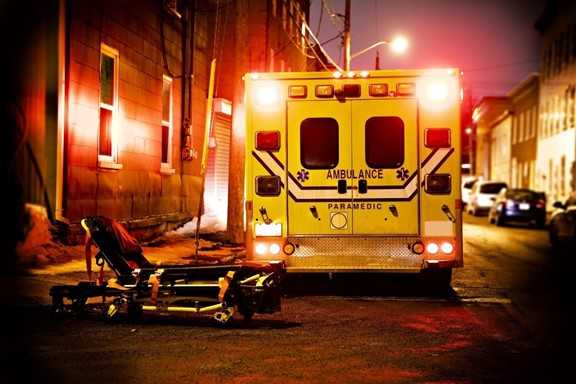Have you been charged with assaulting another person or a peace officer? Such an accusation, whether founded or not, must be taken seriously because the consequences of a guilty verdict are dire. The penalties for assault are severe and can stay with you for a very long time.

Now that you know, how must you respond to an assault charge against you? You must turn to a lawyer specializing in criminal law as soon as possible! These professional criminalists are in the best position to prepare a solid defense and maximize your chances of obtaining a “not guilty” verdict.
Look no further, JuriGo explains how to defend yourself against assault charges!
What is an assault charge?
Before getting into a panic, ask yourself this question: are you really the target of an assault charge? You must know that all types of assault, whether simple, with a weapon, aggravated, or otherwise must have the same four elements.
Hence, no matter what type of assault, it will have to include the following four elements!
The use of force
“Force” in terms of an assault charge is extremely broad and includes any physical contact against another person without that person's consent.
Pushing, spitting, shaking, and all other similar gestures will fall into the category of “use of force”. You will understand that it is not the violence of the force used that matters but the fact of having used it.
Intent to use force
In criminal law, an accused cannot be convicted of an offence if he did not intend to commit it (the mens rea). Thus, accidental contact with another person, without any intent to use force, would not constitute an assault.
Lack of consent
For the use of force to be applied to an assault charge, there has to be a lack of consent on the part of the victim. The latter must not have given his consent to the perpetrator, otherwise, it will be difficult to gather the elements constituting the crime.
Knowledge of this lack of consent
Finally, the fourth and final element of an assault is the knowledge of lack of consent.
These four elements must be proven beyond a reasonable doubt!
For criminal charges, the Crown Attorney (also known as the Crown Prosecutor, DPCP, etc.) bears the burden of proving guilt beyond a reasonable doubt.
As a person accused of assault, you don’t have the burden of proof but to maximize your chances of being exonerated, it is still necessary to prepare a complete defence against the charges raised.
Now that you are familiar with the general offence of assault, you will have to distinguish the five types of assault that exist in criminal law!
Did you commit simple assault?
Simple assault is the “less serious” offence under the Criminal Code!
This type of assault has more lenient penalties and involves a minimal degree of force. Assault will be defined as “simple” when the four elements (force, intent, lack of consent, and knowledge of lack of consent) are combined but resulted in minor consequences to the complainant such as non-serious injuries.

Physical contact is not necessary for you to be charged with simple assault.
The use of force on a charge of assault can be in the form of threats or threatening gestures for as long as the four elements of an assault are present.
Attempts to use force may also justify charges of simple assault!
What is an assault charge?
Assault with a weapon is one of the most serious offences under the Criminal Code. This offense involves using or threatening to use force against another person without the person’s consent and with the use of a weapon. The severity of the acs is therefore important!
But pay attention! A “weapon” as defined by the Criminal Code is not limited to knives and firearms. The law has a very broad definition of what constitutes a weapon and several everyday objects may correspond to the definition such as a stick, bat, or an object thrown at a person.
It is also not necessary for the person to actually use the weapon in the commission of the assault; simply carrying and threatening to use the weapon may justify charges of assault with a weapon against the assailant.
Assault causing bodily injury
This offence is easy to understand in its definition since it is a simple assault under the general definition to which is added the consequence of bodily harm. This is easy to understand until we define what constitutes an injury within the meaning of the law!
What is an “injury” under the Criminal Code? The courts have developed a definition of “bodily harm” as an injury that harms a person's health and is neither transient nor insignificant.
Thus, the prosecuting attorney for criminal and penal cases will have to prove beyond a reasonable doubt that your action (the use of force) was the cause of this "non-transient and not insignificant" injury. If such a causal link is proven, your sentence could be more severe!
What is the penalty for Aggravated assault?
Aggravated assault is certainly one of the most serious crimes. The Criminal Code defines this offence as an assault that "injures, disfigures, maims, or endangers the life of the complainant." The gravity of the action of the accused towards the complainant is, therefore, critical and can justify the imposition of a maximum sentence of 14 years’ imprisonment.

What is the difference between AGGRAVATED assault and assault causing BODILY HARM?
There is a fine line between these two charges which is drawn mainly in terms of the severity of the injuries and the permanence of the injuries. Severe bodily harm to another person will likely tip the balance towards a charge of aggravated assault.
Who decides on the assault charge? The Director of Criminal and Penal Prosecutions (DPCP) does! He has the discretion to choose the type of charge and the manner of indictment (summary or criminal) which will have a huge impact on the severity of the sentence!
Assault on a peace officer
The Criminal Code has a specific offence of assault in section 270. This provision states that a person is guilty of an indictable offence if he or she assaults a peace officer in the course of his or her duties, including attempting to resist arrest or preventing the peace officer from doing his or her job.
Who are the peace officers covered by section 270 of the Criminal Code?
Section 270 of the Criminal Code applies not only to police officers but also to public servants, correctional officers (prison guards), and other persons who may be qualified as “peace officers”.
Again, this is an offence with serious consequences! Find a lawyer as soon as possible if you are the target of an assault charge against a peace officer.
Is there a defence against assault charges?
Absolutely, because no criminal charge is without a defence! There is always a way out and you just need to find it with the help of a criminal lawyer. The charge of assault is no exception to this principle and that is why the law and jurisprudence have created defences to this charge!
For an assault charge, possible defences include:
The Defence of Consent
As mentioned earlier, an assault charge can only be raised against you if there was a lack of consent on the part of the victim. Thus, depending on your situation, it is possible to base your defense on the fact that the victim consented to physical contact – the classic example of such a defence being a fight.
Self-defence
You did use force against someone but was it to defend yourself? Self-defense is an excuse that could break a deadlock if the harm you have caused is proportional to the harm you have avoided and if you have a legitimate reason to fear harm being done to you.
Accident
The charge of assault requires criminal intent to use force. If the act you are accused of was purely accidental and you never attempted to use force against another person, it can be the basis of your defense.
Do you think one of these defences can extricate you from this problem? The best person to tell you the truth about the appropriate defense for your situation is a criminal lawyer! His expertise and extensive experience can help you mount a solid defence to maximize your chances of successfully beating an assault charge.
Explore your options with a criminal lawyer by contacting JuriGo without delay!
What are the possible prison sentences for a charge of assault?
Assault is a crime against a person! For this reason, these offences carry very severe penalties designed to punish offenders and discourage recidivism. Are you curious about what awaits you if you get a guilty verdict for your assault charge?
Refer to the table below summarizing possible sentences for an assault charge in Quebec!
| Type of Assault | Summary Indictment | Criminal Indictment | Other applicable penalties |
|---|---|---|---|
| Simple assault | Maximum prison term of 2 years less 1 day | Maximum prison term of 5 years | Absolution Probation Fine Reprieve Intermittent sentence Imprisonment |
| Assault with a weapon | Maximum prison term of 2 years less 1 day | Maximum prison term of 10 years | Absolution Probation Fine Intermittent sentence Imprisonment |
| Assault Causing Bodily Harm | Maximum prison sentence of 2 years less 1 day | Maximum prison term of 10 years | Absolution Probation Fine Intermittent sentence Imprisonment |
| Aggravated assault | Not applicable | Maximum prison term of 14 years | Probation Fine Intermittent sentence Imprisonment |
How will the sentence for YOUR assault charge be decided?
The table above represents the range of possible sentences but it does not mean that it will be your sentence if found guilty. In criminal law, the principle of the individualization of the sentence requires that each sentence be imposed not only upon consideration of the crime but also of the person, taking into account:
-
Recidivism (criminal history)
-
The personal situation of the accused
-
The seriousness of the crime/offence
-
The accused’s share of responsibility
-
Proportionality
By considering all these factors, you understand that the length and severity of these different sentences vary enormously from one case to another. Make sure you understand what you are really risking by consulting a criminal lawyer!
Why turn to a criminal lawyer for an Assault charge?
The law is a field that includes several areas of expertise and criminal law is certainly the most unique of them. The subtleties of criminal law are numerous and the line between a guilty and not guilty verdict can be thin. Choosing the right criminal lawyer is, therefore, crucial!

By turning to an experienced criminal lawyer, you maximize your chances of choosing the right defence. Criminal law revolves around both facts and law, and the formulation of a full defence will require an adequate understanding of both.
Ultimately, your lawyer’s skills will have a big impact on your chances of success! Keep in mind that the fate of your trial lies in the hands of your criminal lawyer. Choose an experienced and trustworthy lawyer to defend you against an assault charge.
Everyone has the right to a criminal defence in Quebec and you are no exception! Contact JuriGo now; we are working to find the right professional to help beat an assault charge.
Find the best criminal lawyer to defend yourself with JuriGo!
Why suffer the anguish of an assault charge when there are criminal lawyers available to help you?
Their unique expertise and in-depth knowledge of the Criminal Code make them your most important allies until the day of your trial. Find a lawyer to be your ally in winning your case!
JuriGo has a vast network of partner criminal lawyers across the province. Get connected to the best lawyers for your case by filling out the form at the bottom of this page.
Our referral service is FREE OF CHARGE and NO-OBLIGATION!